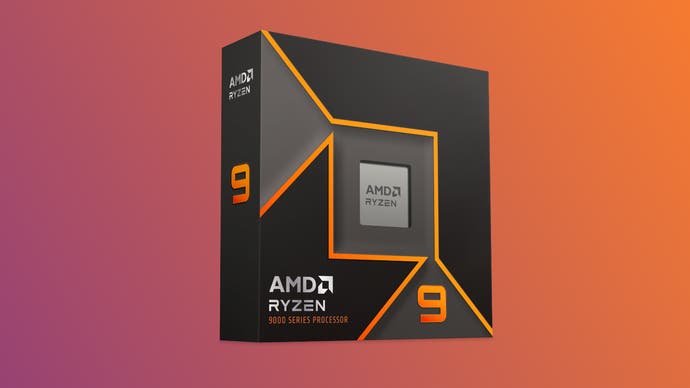AMD Ryzen 9 9900X and Ryzen 9 9950X review: mystifying performance
Something is broken here.
So: where does that leave us? In short, perplexed - the 9900X and 9950X show great performance in content creation, relatively speaking, but suffer hugely in games where they often come in slower than their predecessors and the Core i9 14900K they are meant to compete against. There are some areas where improvements are visible, but on the whole it seems like there's something deeply wrong here - despite troubleshooting that persisted well into the early hours and exhausted all of AMD's suggestions, including a complete Windows 11 reinstall that took several hours to complete. Core provisioning would perhaps fit the bill, given AMD's special additional reviewer's instructions for the two-CCD 9900X and 9950X, but other explanations are certainly possible.
In terms of a fix, it's not clear at this stage whether it's a chipset driver or BIOS issue that could be fixed through a software update, or some bizarre problem with our setup that showed more or less acceptable performance with the 9600X, 970X, 7900X and 7950X. However, based on the fact that we've encountered it both on our normally performant test system we used last week and on a completely new drive set up fresh as a new Ryzen 9000 buyer might do, this is an issue that may affect other users - and indeed other reviews do appear to describe similar issues.
Given the relatively pale performance improvements here, even if our issues are resolved and the 9900X and 9950X return to the level of the 7900X and 7950X or a bit beyond, it's clear that Ryzen 7000 remains the better buy right now for gaming purposes. In content creation, Zen 5 does have its merits, but again I would much rather pick up a discounted Ryzen 7000 part unless I absolutely needed outright performance - and here the 14900K should also be considered, despite its relatively inefficient power profile.

For now, we'll leave things there - it's a bit silly to do too much performance or value analysis at this stage given that so many of our gaming results have regressed. We'll continue to try to solve these issues in concert with AMD, and with luck some kind of setup change or software update will rescue the situation.
As always, we encourage you to read widely - especially in the wake of these issues, which seem to affect some workloads more strongly than others and haven't been adequately explained by AMD. I note that Anandtech reported significantly higher core-to-core latencies on 9950X versus 7950X, while several outlets have picked up on other oddities based around the inclusion of PPM provisioning for this generation of CPUs but not for the two-CCD parts last generation.
Beyond the overall weirdness, if other outlets show relatively meagre performance gains versus Ryzen 7000, that also calls into question the existence of these CPUs in the first place. It may be that Zen 5 isn't really intended to be a desktop competitor in the same way that Zen 4 was - given that it arrived in Strix Point form first, perhaps that is the focus of the evolutions AMD has architected.
Regardless, the price to performance ratio here is much poorer than we've come to expect from Ryzen, and it feels like the Red Team has really missed a trick in a time period that Intel has been under increasing pressure for its 13th and 14th-gen degradation issues. At least Ryzen 7000 still looks good - although any hopes for big discounts in the wake of Ryzen 9000 have surely been dashed by the reception to these new chips so far.
AMD Ryzen 9 9900X and Ryzen 9 9950X analysis
- Introduction, test rig and content creation benchmarks
- Gaming benchmarks: Flight Simulator 2020, Hitman 3, Forza Horizon 5
- Gaming benchmarks: Far Cry 6, Cyberpunk 2077, Crysis 3 Remastered
- Gaming benchmarks: Starfield, Counter-Strike 2
- AMD Ryzen 9 9900X and Ryzen 9 9950X: the Digital Foundry verdict [this page]
